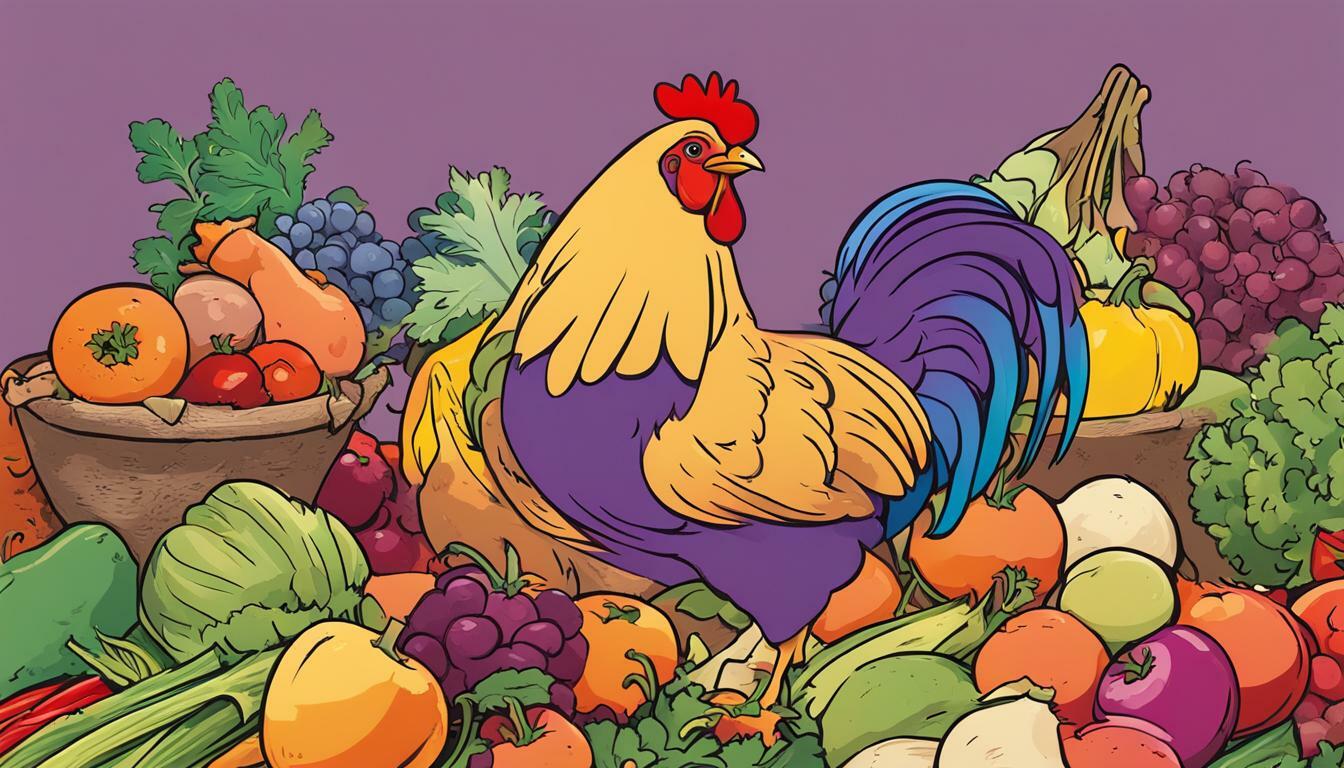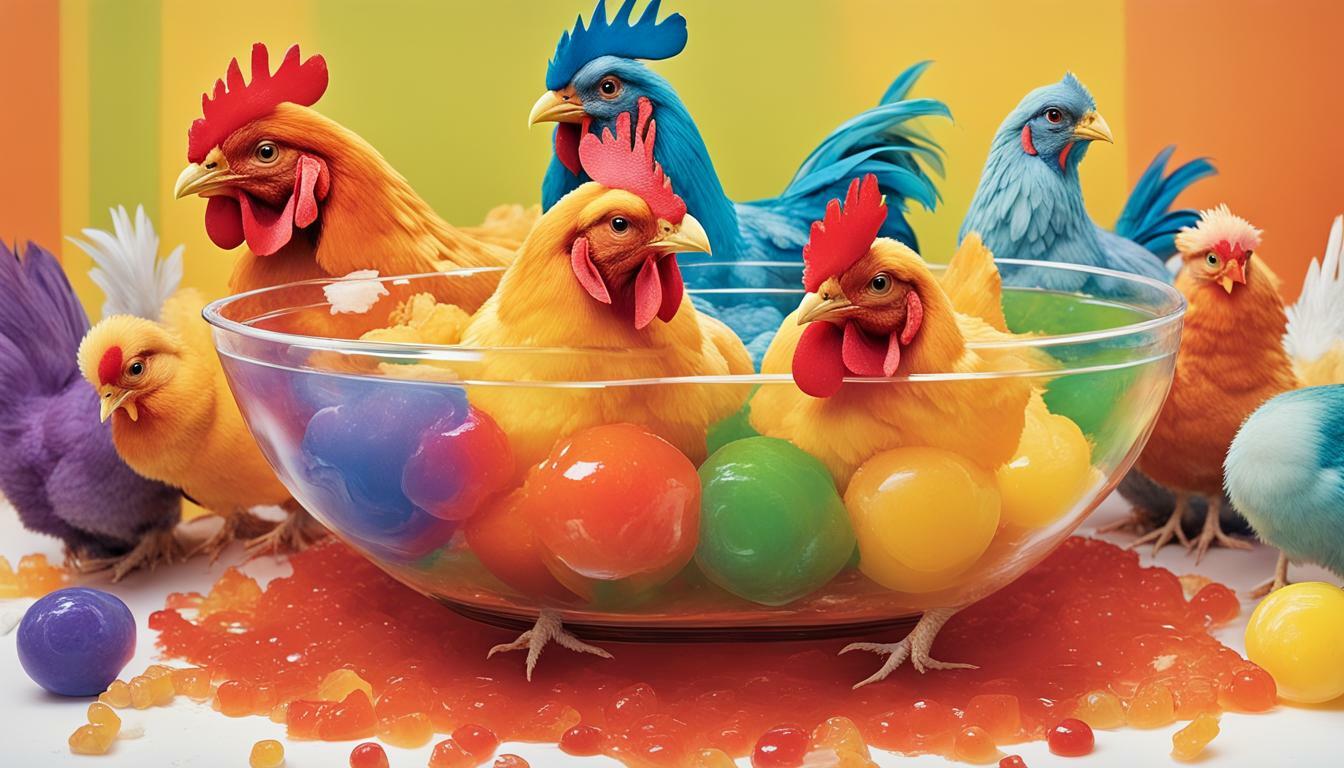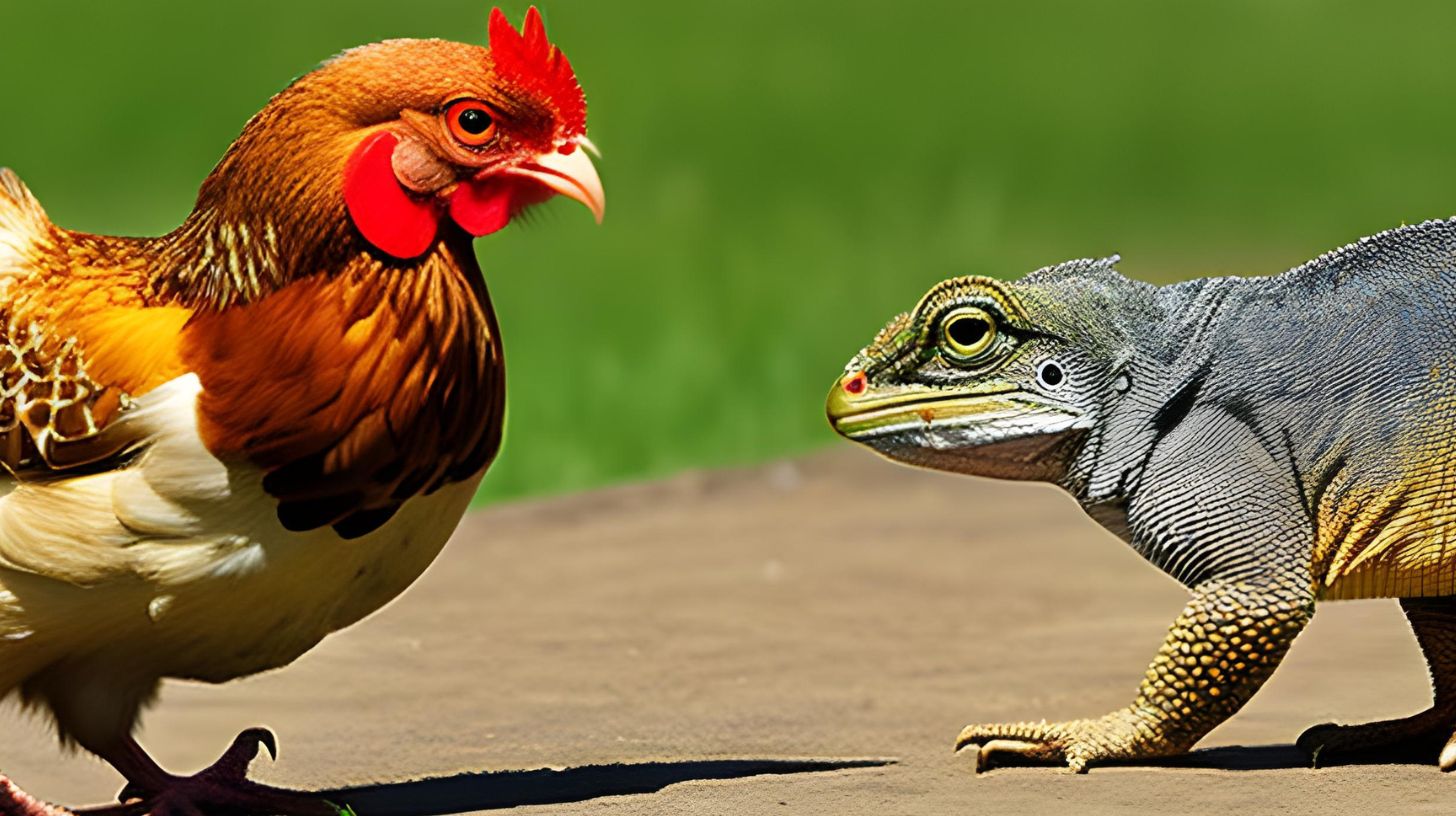Can Chickens Eat Melon Seeds?
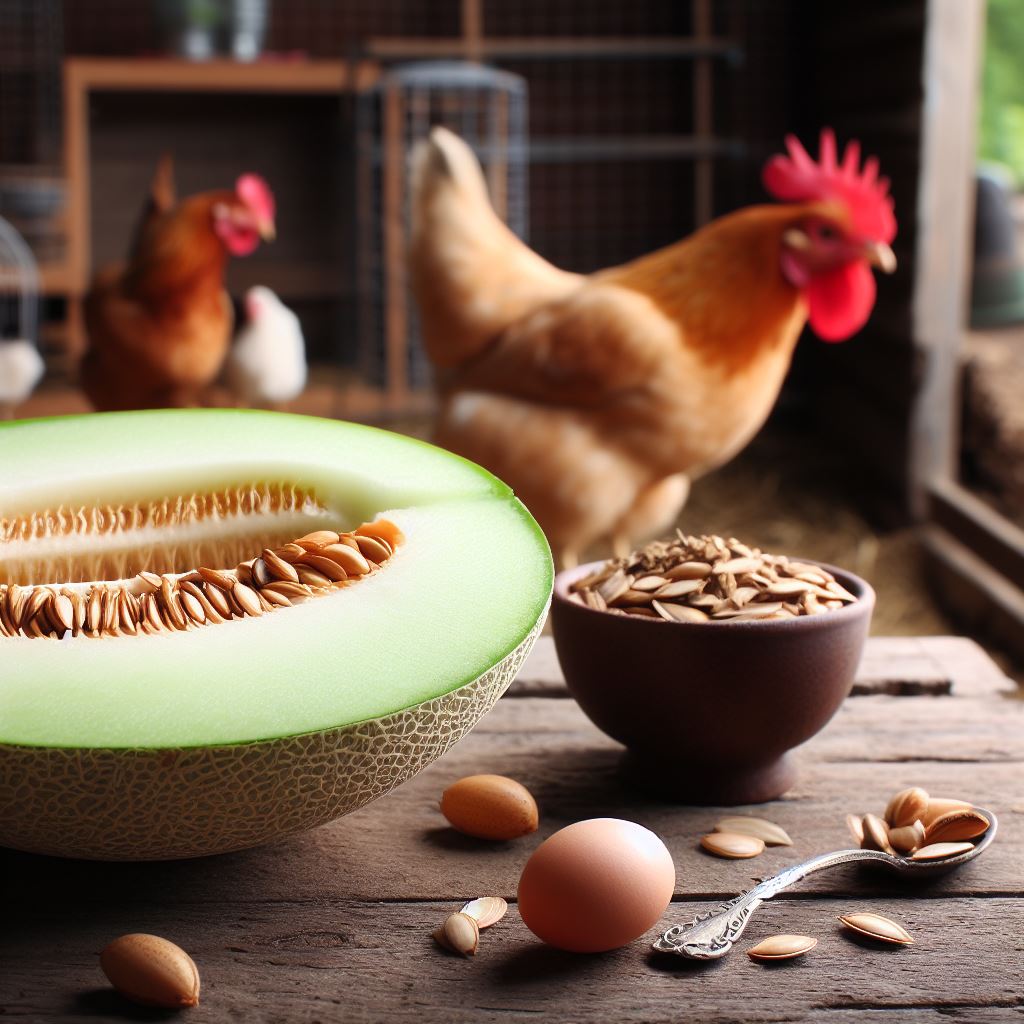
Table of content:
The short answer is yes, chickens can safely eat melon seeds in moderation as part of a balanced diet. Seeds can provide extra protein, fat, and nutrients that promote health. But as with any treat, it’s best not to overdo it.
As a chicken owner, you likely forage and scavenge for nutritious treats to supplement your flock’s diet. You may have wondered while prepping a refreshing fruit salad, if those cantaloupe or honeydew seeds can be shared with your feathered friends too.
Chickens can eat a wide variety of fruits and melons are no exception. Most types of melons are safe for chickens to eat including:
- Watermelon
- Cantaloupe
- Honeydew
- Muskmelon
- Casaba
- Canary melons
These sweet melons provide hydration along with useful vitamins, minerals, and antioxidants. It’s fine to share small servings of melon flesh, rind, and seeds with your flock as an occasional treat. Just keep portions controlled as too much can lead to loose droppings or diarrhea. Always monitor your chickens after introducing new foods.
 Are Melon Seeds Safe for Chickens?
Are Melon Seeds Safe for Chickens?
The seeds found in melons, also called pepitas, are safe and nutritious for chickens to eat. Most melon varieties have small, edible seeds that chickens can easily swallow.
Melon seeds provide extra:
- Protein
- Fiber
- Healthy fats
- Vitamins and minerals
These nutrients help support egg production, growth, feathering, and overall flock health. The protein in seeds can also help chickens feel fuller longer.
In the wild, chickens forage for seeds and nuts to vary their diet. You can replicate this natural behavior by offering your backyard flock melon seeds and other seed treats in moderation.
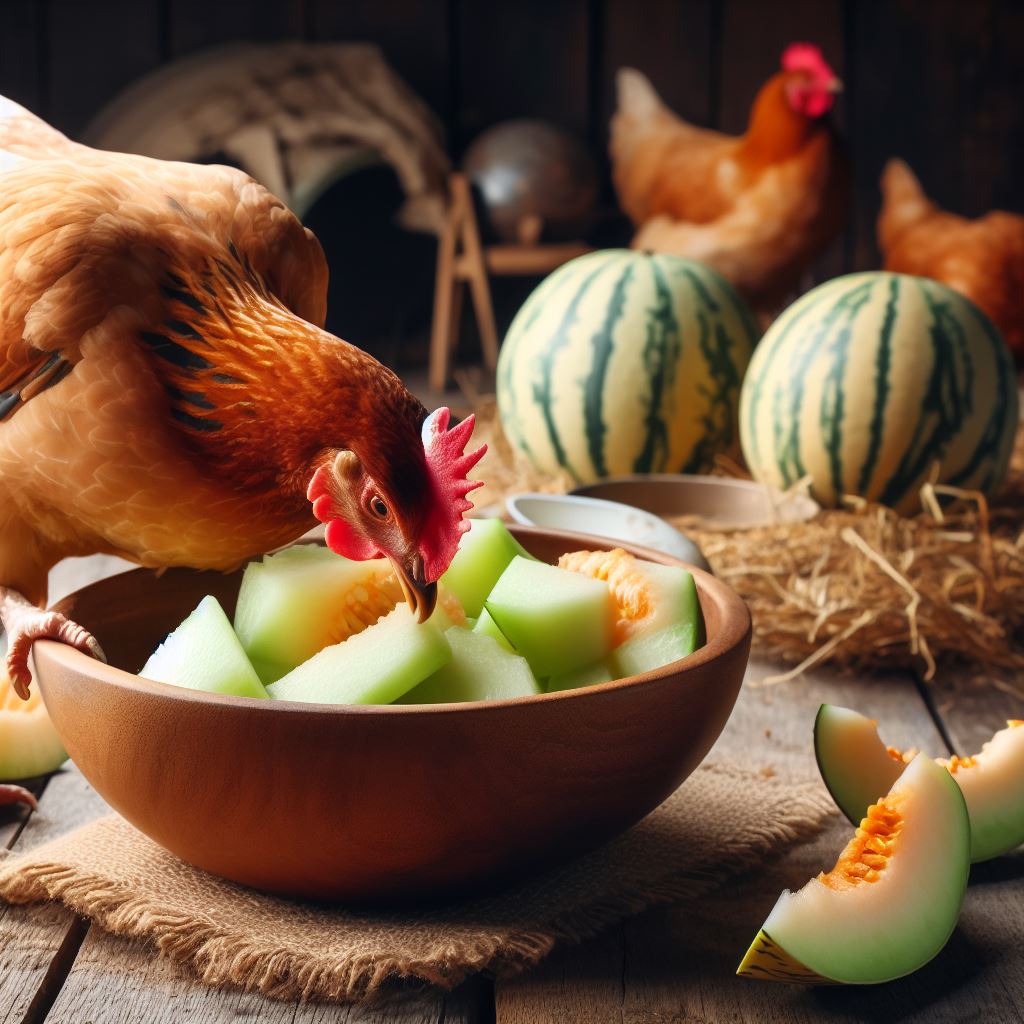 Benefits of Feeding Melons and Seeds to Chickens
Benefits of Feeding Melons and Seeds to Chickens
Sharing melons and their seeds with your flock provides several key benefits:
1. Hydration
Chickens need plenty of fresh water to thrive. The high water content in melons helps keep chickens hydrated, especially during hot summer months. The juicy flesh provides an extra hydration boost.
2. Nutrition
While melons are not a complete feed themselves, they offer many useful vitamins, minerals, and antioxidants, including:
- Vitamin C – boosts immunity
- Vitamin A – supports vision and egg production
- Potassium – important for egg hatchability
- Magnesium – strengthens bones and eggshells
- Beta-carotene – an antioxidant that aids health
Melon seeds also pack a nutritional bonus, providing protein, healthy fats, fiber, magnesium, phosphorus, and more.
3. Treats and Enrichment
Chickens love pecking at fresh fruits and veggies. Adding melons to their diet provides enrichment. Varying their feed with treats prevents boredom and repetitive pecking behaviors too.
4. Natural Foraging
Foraging for seeds and nuts is a natural behavior for chickens. Scattering melon seeds in their run or coop mimics the foraging chickens would do in the wild.
5. Free Feeding
Melons can provide free food from your garden, or make use of melon scraps left over from preparing fruit salads and smoothies. This saves on feed costs.
6. Possible Egg Benefits
Some owners report more vividly colored yolks when feeding melons. The beta-carotene may seep into the yolks. But more research is needed to confirm benefits.
How Much Melon Can Chickens Eat?
While small amounts of melon are safe for chickens, it’s best to feed them as a treat in moderation. Chickens don’t have sweet taste receptors like humans. They enjoy melons more for the juiciness than sweet flavor.
Follow these tips for feeding melons:
- Start with small servings – a few chunks or spoonfuls per bird as a treat 1-2 times per week.
- Monitor your flock – reduce portions if any chickens get loose droppings after eating melon.
- Chop melons into smaller pieces to prevent choking hazards.
- Remove large seeds that could lodge in a chicken’s throat. But smaller melon seeds are fine to leave.
- Feed only ripe, unspoiled melons – never moldy or wilted produce.
- Provide fresh clean drinking water always.
- Don’t allow chickens to gorge all day on discarded melons – this can lead to health issues. Feed regulated portions.
In addition to melons, you can offer a variety of other fruits and veggies to create a balanced diet including apple slices, lettuce greens, fresh corn, leafy greens, squash, carrot pieces, berries, and more. Rotate different produce regularly to offer variety. Most treats can be fed 2-3 times per week safely.
Never feed chickens avocado, fruit pits and seeds, onions, or garlic.
 Step-By-Step Guide: Preparing and Serving Melons for Chickens
Step-By-Step Guide: Preparing and Serving Melons for Chickens
Follow these steps for safely preparing melons to share with your flock:
1. Select a Fresh, Ripe Melon
Pick a fully ripe melon that is undamaged with no mold or soft spots. The rind should have a strong aroma. A ripe melon makes for tastier feeding.
2. Wash the Melon
Rinse the outer rind under cool running water to remove any dirt, debris, or bacteria. Scrub if needed with a vegetable brush. Pat dry.
3. Slice in Half and Scoop Out Seeds
Cut the melon in half widthwise. Then use a spoon to scoop out the inner seeds in a bowl to feed later.
4. Remove Rind
For watermelon, remove the outer rind, leaving just the red inner flesh. For cantaloupe or honeydew, simply slice off the outer rind to expose the inner flesh.
5. Chop Flesh into Smaller Pieces
Next, chop the melon flesh into smaller 1-inch chunks or bite-sized pieces.
6. Remove Large or Hard Seeds
Check for any large individual seeds that could pose a choking risk. Remove any thick or hard seeds before feeding melon to your flock.
7. Rinse Seeds and Serve
Rinse any leftover seeds in a colander to remove sticky juice or pulp. Allow seeds to air dry if needed.
8. Toss Melon Pieces and Seeds into the Run or Coop
Scatter melon chunks and seeds into the run or coop to allow chickens to forage. Provide only an amount that will be eaten in 1-2 days for peak freshness.
Monitor your flock after feeding new treats and adjust portions as needed. Offer melons in moderation along with their complete feed and fresh water. Enjoy watching your flock savor their tasty melon treat!
Frequently Asked Questions about Feeding Chickens Melon
Can chickens eat watermelon?
Yes! Chickens enjoy munching on juicy watermelon flesh, rinds, and seeds. Offer bite-size chunks as a supplement to their diet.
What kind of melon is best for chickens?
Chickens can eat all varieties of melons including watermelon, cantaloupe, honeydew, and muskmelons. Each offers similar benefits. Watermelon provides the most hydration.
Can chickens eat cantaloupe?
Cantaloupe is safe for chickens to eat. Scoop out some melon balls or small chunks to share. Cantaloupe provides beta-carotene, potassium, vitamin C, and more.
Can chickens eat melon rinds?
The thick outer rind of melons is edible for chickens to snack on. Offer shredded smaller pieces to avoid choking. Rinds provide fiber.
How much watermelon should chickens eat?
Feed just a few chunks or spoonfuls per chicken, 1-2 times weekly at most. Too much can cause loose droppings. Adjust portions based on your flock’s reaction.
How often can chickens eat melon?
Offer small portions of melon 1-2 times per week at most. Chickens don’t need fruit daily. Rotate melons with other fruits and veggies for variety.
Should chickens eat melon seeds?
Yes, the small edible seeds in melon can be fed to chickens. These seeds provide extra protein, fiber, plant fats, and nutrients. Rinse off pulp before feeding seeds.
Can chickens eat honeydew melon?
Honeydew melon is safe for chickens to eat. Introduce slowly in bite-size pieces to ensure it does not cause diarrhea.
Conclusion
Melons can make a fun and nutritious supplemental treat for backyard chicken flocks. Feed chickens melon flesh, rinds, and seeds in moderation alongside their layer feed.
Focus on chopping melon into bite-size chunks, removing choking hazards, and rinsing all parts before serving.
Pair melon with variety of other fruits, veggies, greens, and treats to round out your chickens’ diverse diet.
Welcome. I’m Adreena Shanum, the proud owner of this website, and I am incredibly passionate about animals, especially poultry. I founded adreenapets.com as a labor of love, stemming from my desire to share my knowledge and experiences with poultry enthusiasts worldwide.


